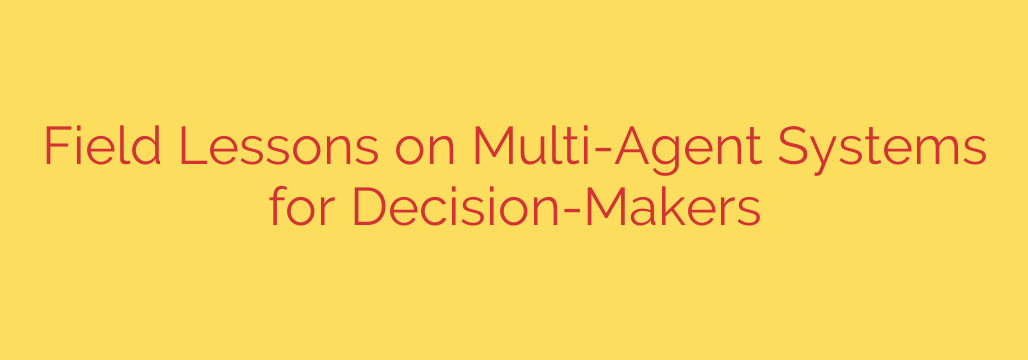
Navigating the complexities of modern decision-making often requires moving beyond centralized, monolithic systems. A powerful paradigm emerging for tackling dynamic and distributed challenges is the use of Multi-Agent Systems (MAS). These systems consist of multiple autonomous or semi-autonomous intelligent agents that interact with each other and their environment to achieve individual or collective goals.
Unlike traditional software, MAS excel in scenarios where problems are inherently decentralized, involve multiple interacting entities, and require flexible, adaptive responses. Think of optimizing supply chains with numerous independent partners, managing smart grids with diverse energy sources and consumers, or coordinating robotic fleets in unpredictable environments.
Decision-makers considering MAS should understand their core strengths: autonomy, allowing agents to make local decisions based on available information; interactivity, enabling agents to communicate, negotiate, and collaborate; and adaptability, allowing the system to evolve and learn over time. These characteristics make MAS particularly effective for handling complexity, uncertainty, and scale that overwhelm single-agent or centralized approaches.
However, implementing MAS is not without its challenges. Key considerations include defining clear agent goals and behaviors, managing agent interactions and communication protocols, ensuring system stability and emergent properties, and developing robust testing and validation methods. Successful deployment often requires careful design, starting with well-defined problem boundaries and iteratively scaling the system.
The field is rapidly advancing, driven by progress in areas like machine learning, distributed computing, and game theory. As businesses and organizations face increasingly dynamic and interconnected problems, leveraging the power of Multi-Agent Systems offers a path towards more resilient, efficient, and intelligent decision-making capabilities. Decision-makers should explore pilot projects and engage with experts to understand how MAS can be tailored to their specific domain challenges and unlock new levels of performance.
Source: https://cloud.google.com/blog/products/ai-machine-learning/what-execs-want-to-know-about-multi-agentic-systems-with-ai/








